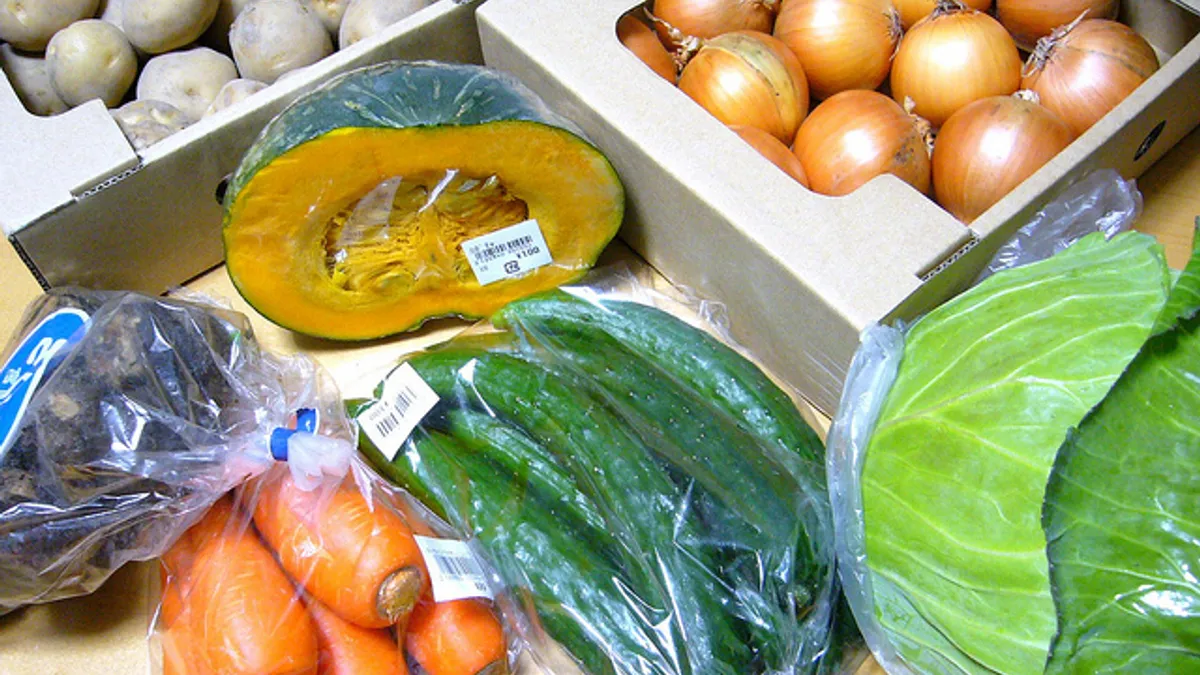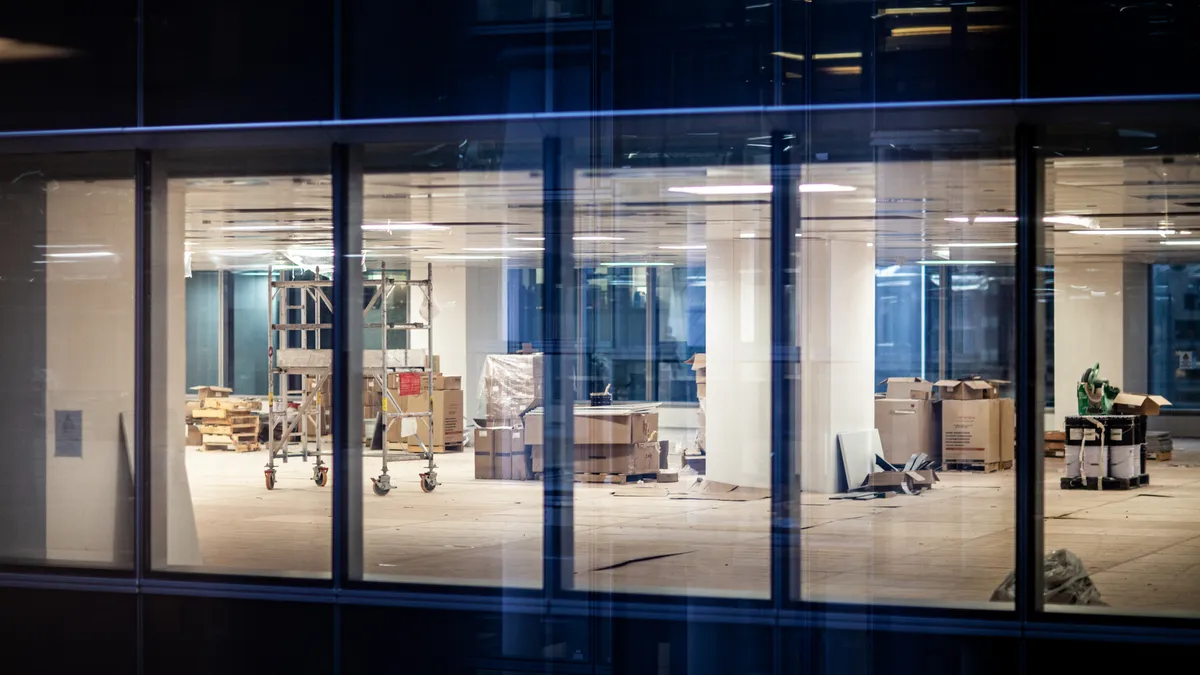Dive Brief:
- Environmental Protection Agency data reveals wasted or expired food is the single most abundant product in today's landfills and incinerators, Bostonomix reported last week. Yet, in addition to waste, every supermaket item that goes to waste also represents a failed sale for stores.
- However, in Massachusetts, a new anaerobic digester at a company called Divert is transforming that wasted food into energy; using the contained methane gas it produces to power (in part) the Stop & Shop grocery chain's distribution center.
- After the gas is collected, the digester retains and distributes the leftover compost, which can enrich the soil at various farms to help grow the current round of available produce for sale at Stop & Shops around the region.
Dive Insight:
Finding a way to mine value from what would otherwise go to waste or deduct from the bottom line is at the heart of reverse logistics. In fact, it's a vein that runs throughout the supply chain, no matter what's being sold ... or returned.
Stop & Shop's partnership with Divert is part of a recent trend where retailers and distributors are turning to reverse logistics for an additional revenue stream, and it has all the symptoms of a good reverse chain strategy: multi-stakeholder collaboration, a full-chain perspective and revenue-optimizing mission.
The food waste partnership features a distributor and a grocery store finding new ways to add value from the chronic food waste and spoilage problem. It's a sustainability director's dream: not only is food not fully going to waste, but the process of transforming waste-to-compost will simultaneously reduce emissions and help farmers. Talk about a circular supply chain.
Yet, if reducing waste is part and parcel of the reverse logistics mission stakeholders must first identify the most appropriate channel for their spoiled or returned goods.
That's why in January UPS teamed with Optoro to offer clients a reverse logistics service that can momentarily identify the best resell channel for a retail return. One of these options is placing it on a resale website, where customers expect good deals. Similarly, retailers may turn to liquidators which accept goods from any retailer, before reselling it independently.
The internet age may have brought new challenges and greater returns to the retail world, but reverse logistics initiatives continue to show even waste can add value to supply chains.











